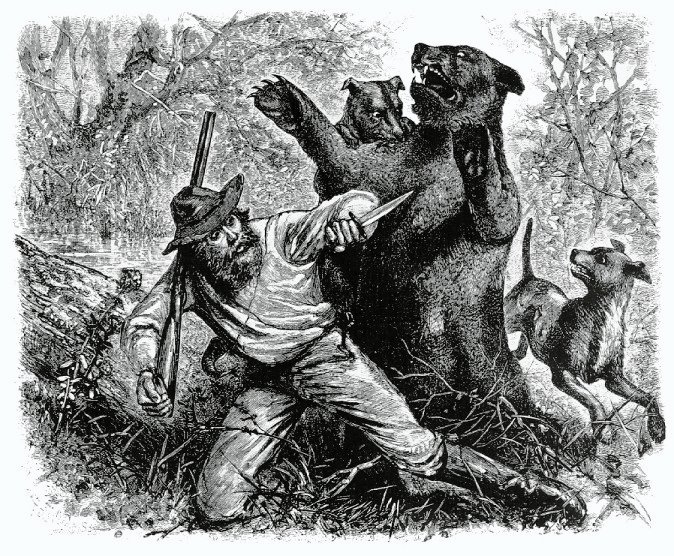In the annals of history, few figures embody the raw grit, resilience, and sheer will to survive like Hugh Glass. A frontiersman, fur trapper, and legendary survivor, Glass’s story is one of unimaginable hardship, unrelenting determination, and a revenge saga that has cemented his place as one of history’s ultimate badasses. His tale is so extraordinary that it has inspired books, movies, and countless campfire stories. But the real Hugh Glass was even more remarkable than fiction could ever portray.
The Man Behind the Legend
Little is known about Hugh Glass’s early life, adding an air of mystery to his already larger-than-life persona. Born around 1783, likely in Pennsylvania, Glass was a man of the wilderness, drawn to the untamed frontiers of America. By the early 19th century, he had become a seasoned fur trapper, navigating the treacherous landscapes of the American West and earning a reputation as a tough and resourceful frontiersman. But it was an event in 1823 that would immortalize his name in history.
The Grizzly Attack
In the summer of 1823, Glass was part of a fur trapping expedition led by General William Ashley, venturing into the uncharted territories of present-day South Dakota. While scouting alone near the Grand River, Glass stumbled upon a grizzly bear and her two cubs. The enraged mother bear attacked him with savage ferocity, mauling him relentlessly. Glass fought back with his knife, but the bear left him horrifically wounded—his ribs were broken, his leg was mangled, his throat was slashed, and his back was ripped open to the point where his ribs were exposed.
Miraculously, Glass managed to kill the bear, but he was left on the brink of death. His companions, believing he wouldn’t survive, made the difficult decision to leave him behind. Two men, John Fitzgerald and a younger trapper named Jim Bridger, were tasked with staying with Glass until he died. However, fearing attacks from Arikara warriors, Fitzgerald convinced Bridger to abandon Glass, taking his rifle, knife, and supplies. They reported to the rest of the expedition that Glass had succumbed to his injuries.
The Crawl to Survival
But Hugh Glass wasn’t dead. Against all odds, he regained consciousness and found himself alone, unarmed, and hundreds of miles from the nearest settlement. Refusing to accept his fate, Glass embarked on an epic journey of survival that would become the stuff of legend.
With his wounds festering and no tools to hunt or defend himself, Glass crawled and limped his way across the wilderness. He survived by eating berries, roots, and the remains of a buffalo carcass he found being picked over by wolves. He set his own broken leg and allowed maggots to eat the dead flesh in his wounds to prevent infection. Over the course of six weeks, Glass crawled over 200 miles to reach Fort Kiowa, the nearest outpost. His journey was a testament to human endurance and the unbreakable will to live.
The Quest for Revenge
Upon reaching safety, Glass didn’t rest for long. Fueled by a burning desire for revenge against Fitzgerald and Bridger for abandoning him, he set out to track them down. When he finally confronted Bridger, he spared the young man, believing him to be inexperienced and influenced by Fitzgerald. Fitzgerald, however, had joined the army, and Glass was unable to exact his revenge without facing severe consequences. Some accounts suggest Glass eventually forgave Fitzgerald, while others claim he never got the chance to confront him. Regardless, Glass’s thirst for vengeance became a defining part of his legend.
Legacy of a Badass
Hugh Glass’s story is more than just a tale of survival—it’s a testament to the indomitable human spirit. His ability to endure unimaginable pain, overcome insurmountable odds, and emerge stronger than ever has made him an enduring symbol of resilience and determination.
In popular culture, Glass’s story has been immortalized in films like The Revenant (2015), where Leonardo DiCaprio portrayed the frontiersman in a visceral and haunting performance. While the movie took creative liberties, it captured the essence of Glass’s struggle and the harsh realities of life on the frontier.
Hugh Glass’s legacy lives on as a reminder that even in the face of certain death, the human will can prevail. He wasn’t just a survivor; he was a fighter, a wanderer, and a man who refused to be defeated by nature, beasts, or betrayal. In the pantheon of history’s badasses, Hugh Glass stands tall—a true legend of the American frontier.

